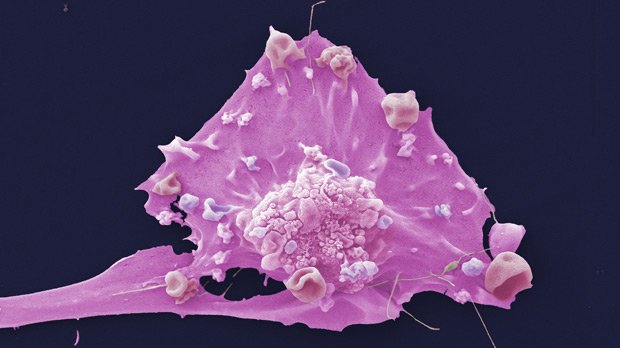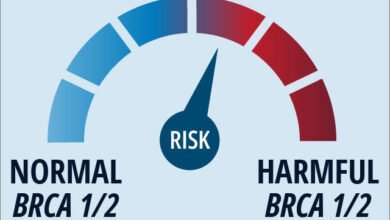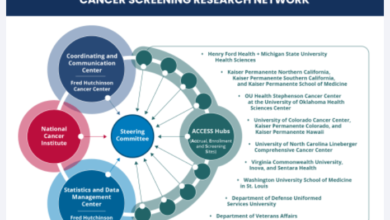Cancer Research UK – Science blog

Leicester Royal Infirmary EM Department
A new breast cancer research project, launched in memory of Girls Aloud singer Sarah Harding, has recruited its first participant.
The BCAN-RAY (Breast Cancer Risk Assessment in Young Women) project, funded by The Christie Charity Sarah Harding Breast Cancer Appeal and Cancer Research UK, has been set up following Sarah’s dying wish to find new ways to spot the signs of the disease earlier and save lives.
BCAN-RAY will be one of the first research studies in the world to identify new ways to predict the risk of younger women getting breast cancer. 33-year-old Catherine Craven-Howe is the first participant to take part in the trial.
Although I don’t have breast cancer myself and I don’t have a history of it in my family, I know just how important clinical trials and research are. I hope my participation will help devise a simple test to detect the likelihood of breast cancer for young women like me in the future.
– Catherine
The innovative study has been made possible by funding from the Sarah Harding Breast Cancer Appeal with support from Sarah’s family, friends and Girls Aloud bandmates. Together through various fundraising initiatives, they have raised over £1 million to date.
A first of its kind
The project will look at risk factors most commonly found in women diagnosed with breast cancer in their 30s.
Based on those risk factors, the scientists will build a model, which can identify which women are most at risk of developing breast cancer in their 30s.
The researchers hope that their findings will enable all women to have a risk assessment for breast cancer when they reach the age of 30. Those women identified as high risk could then have access to early screening and opportunities for prevention, to reduce the chances of them developing and potentially dying from the disease.
Catherine is the first of 1,000 women aged between 30 and 39 the study aims to recruit.
250 will be women who have been diagnosed with breast cancer, with no family history of the disease. And they will be studied alongside 750 women in the same age group who have not had breast cancer, and who also have no family history of the disease.
How will it work?
Participants will be asked to complete a questionnaire, provide a saliva sample for genetic testing and have a low dose risk assessment mammogram.
Subtle changes in DNA can be identified through saliva and The Christie NHS Foundation Trust in Manchester is working with Cancer Research UK to establish types and patterns of genes to develop personalised risk scores.
Risk predictions can be overlayed with some other factors such as when a woman’s periods started, alcohol consumption and use of the contraceptive pill. The density of the breast tissue could also play a part in the level of risk of getting the disease.
Sarah’s legacy

Sarah Harding
Every day more than 150 women are diagnosed with breast cancer in the UK* and nearly a fifth of all cases are women who are under 50**, most of whom don’t have a family history of the disease.
Sarah’s consultant, Dr Sacha Howell, from The Christie and The University of Manchester, who is leading on the BCAN-RAY study said:
“Sarah spoke to me many times about breast cancer research and was really keen for more to be done to find out why young women are being diagnosed without any other family members having been affected by the disease.
“There are too many young women in their 30s like Sarah tragically dying from breast cancer. Currently the only indicator we have is based on family history, but this only helps predict one third of cases. We need to find out how we can more accurately identify those in whom it will develop.”
Currently, there is no routine screening programme for early breast cancer in younger women who don’t have family history of the disease, despite it being the most common cause of death in women aged 30-55 years.
Michelle Mitchell, Chief Executive of Cancer Research UK, said: “Even in the darkest days of her cancer journey, Sarah Harding was a fearless advocate for research. She bravely faced up to the pain the cancer caused her, undergoing treatment whilst thinking of ways to help other women in a similar position.
“Since Sarah’s death, it has been inspiring to see people coming together in her memory to support life-saving research. The money raised in Sarah’s name will go a long way towards diagnosing breast cancer earlier in younger women.
“The BCAN-RAY project will fulfil Sarah’s dying wish to help women like her. By harnessing the power of cutting-edge science, we can look forward to the day where all women can live free from the fear of breast cancer.”
References
* Based on the annual average number of new cases of breast cancer in the UK between 2016 and 2018, available from https://www.cancerresearchuk.org/health-professional/cancer-statistics/statistics-by-cancer-type/breast-cancer#heading-Zero, accessed February 2023.
** Based on the annual average number of new cases of breast cancer in the UK between 2016 and 2018 by age, available from https://www.cancerresearchuk.org/health-professional/cancer-statistics/statistics-by-cancer-type/breast-cancer/incidence-invasive#heading-One, accessed February 2023.
Source link
#Cancer #Research #Science #blog



